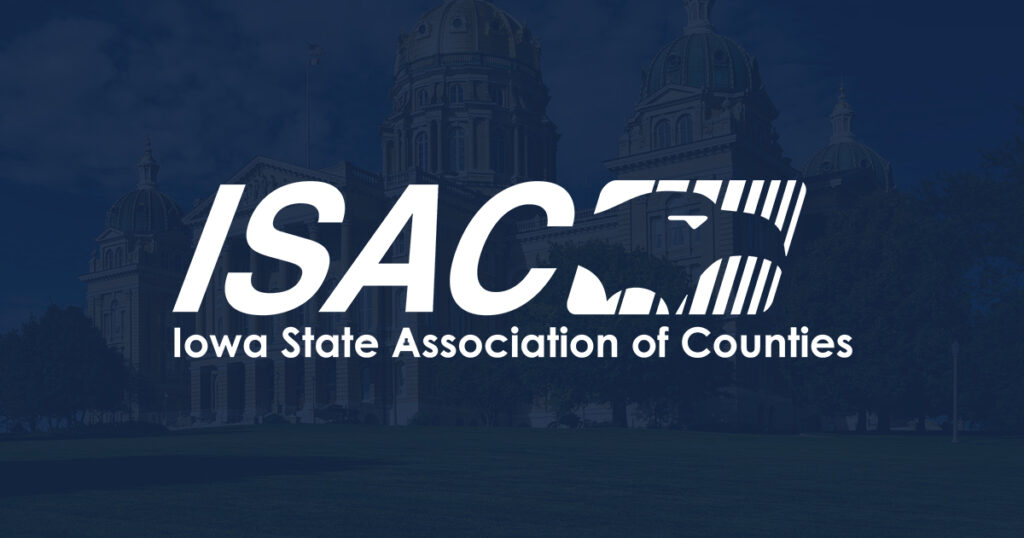Leaving his mark
Copyright lawyer protects music industry, Raygun, burlesque dancers

PERRY BEEMAN May 30, 2018 | 1:28 pm
8 min read time
1,940 wordsArts and Culture, Business Record Insider, Government Policy and LawIt would be easy to say that copyright and entertainment lawyer Brandon Clark is just another son-of-a-music-publisher based in Des Moines who nearly hit it big with his own band and has had quite a bit to do with the success of the Raygun T-shirt empire, local band the Nadas, home-concert platform HomeDitty, the Knoxville Raceway and burlesque dancers accused of showing too much.
But we can’t find another Des Moines businessman quite like him.
Most of us don’t get multiple invitations to the Grammys (as a member of the Recording Academy, he gets to vote), or to sit in on Paul McCartney’s sound check, or to help Raygun score a copyright for its slogan, “the greatest store in the universe.”
It’s all in a day’s work for the Drake Law School graduate and former guitarist/vocalist for Mint, a group that had representatives of labels flying to Des Moines thinking of signing the band. The group, which opened for guitar legend Buddy Guy, once made a music video documenting a house fire set in the name of art as Clark played bass guitar. The band disbanded in 2015 amid personnel issues, but came close to going professional, Clark said.
But here he is. A guy who hates the idea of the 8-to-5 typical work schedule, working in the state’s tallest office building in Iowa’s capital city, albeit without wearing a tie unless it’s absolutely necessary.
Clark heads the copyright and entertainment division at McKee, Voorhees & Sease PLC, well into the atmosphere in the 801 Grand tower.
There, and across the country, he mulls rights questions that don’t bring black-and-white responses. Often, he tells his clients that “it’s more risk than I would be willing to take,” or that, by all means, take the shot because most likely what you want to do is legal.
“[The firm] has given me the freedom to build and grow the practice group while also exposing me to a much more diverse range of clients and issues,” Clark said. “Even though copyright, trademark and patent laws/rights can be very different, at their core, the clients are all creators, whether the client is a musician, an author, an artist, a large corporation, or a startup company, they’re all creating something, so that foundation is very similar.
“I really enjoy working with creative people and helping all of those creators understand and protect their rights. I’m fortunate to get to work with very creative, talented and fun clients. It definitely keeps things interesting and there are very few days that end up feeling routine. They constantly keep me learning and exploring new issues and questions.”
For example, Clark said Raygun lives in a world of parody and satire, and can push envelopes on copyright infringements.
Casey’s has him looking into social media questions — an area that is likely to grow as a subgroup of copyright questions, Clark said.
Some of the questions have been old-school. He was in the middle of the battle over file-sharing online music service Napster’s use of recordings back in the day. Now, he’s working on Congress’ first major overhaul of related laws since 1978.
“Technology has disrupted the music and media industries, and they haven’t done a very good job of adapting,” Clark said. “Generally, they took a reactive approach as opposed to a proactive one and are now trying to catch up and level the playing field.
“From a legal standpoint, the laws have been very slow to respond to technology, and the copyright or intellectual property issues that new technology creates. There are still a lot of unanswered legal questions, but because of that it’s an evolving, and growing, area of law. As the use of social media and technology continues to increase, I anticipate that many of these issues will be considered more regularly and thoroughly.”
Currently, he’s working with Sen. Chuck Grassley and others who are looking to revamp federal law to protect music publishers and those whose business involves music, such as Spotify.
Typically, he’s on the side of the copyright holders, but he defended a Central Iowa high school that was sued by a music licenser for $100,000. Clark thought it was a reach, and got the case settled with “one paragraph and no money exchanged.”
“I am very pro-copyright, but I am anti-abuse,” and some in the music industry are bad actors, he noted.
In the Raygun case, the U.S. Patent and Trademark Office initially refused the request to register a trademark for “the greatest store in the universe,” arguing the trademark was “merely descriptive” of goods and services at the store. Clark changed their minds.
“Ultimately we were able to overcome that objection, but I’ve always thought that objection validated Mike Draper and Raygun as literally creating the greatest store in the universe. At least according to the [patent office],” Clark said.
Clark has represented artists, songwriters, producers, record labels, publishing companies, recording studios, actors, authors, visual artists and clothing companies. And he’s represented Des Moines giants such as UnityPoint Health and the University of Iowa’s pediatric health operations.
Draper, the brains behind Raygun, met Clark when Clark was playing in a band with one of Draper’s high school friends. They started working on projects together a decade ago.
“I needed an intellectual property lawyer, and he was in a band with a buddy of mine from high school,” Draper said. “That may not seem like the standard bedrock of an attorney-client relationship, but right away I realized that he is an extremely sharp guy.
“His work with the music industry in the early 2000s meant that he was coming of age in a fast-changing intellectual property landscape. That is really handy experience to have, since now every industry that deals with IP is changing fast,” Draper said.
That arena “is a little less cut and dried nowadays, so it’s great to have someone like Brandon who can see the nuance of things,” Draper added. “We need someone to bounce ideas off of, to run different scenarios with, and see all sides of a situation.”
Clark grew up in Oskaloosa. Much of his music industry prowess came from working with his father, who runs one of the nation’s most prominent band-music publishers, Barnhouse. Barnhouse CEO Andrew Clark, a trombonist and drummer, took Brandon to music studios all over the country. The two spent hours talking about the fine points of intellectual property.
“My background is definitely an asset, and I think it would be extremely difficult to take the path that I’ve taken without having that background,” Clark said. “I grew up talking about the music industry and copyright law. That exposure was very important. I also really learned, and gained an understanding for, the industry by being in it and running into the issues that my clients are now running into. While it was frustrating at the time, I think it’s made me a much better attorney. I’ve been in their shoes. You can read books and soak up as much information as possible, but I definitely believe that in order to really get it and understand it on that deeper level, you have to actually do it.
He wanted to be a musician. He enrolled at the University of Northern Iowa on a music scholarship to play jazz on bass. He said he was “asked not to return” after a report card that had more D’s than anything else.
His band, Blue Island Tribe, had toured the U.S. and overseas, which apparently had more effect on him than his classes. “We were a college party band that overachieved,” Clark recalled.
“I was not a good student. I think I had a 2.3 grade point average,” he said.
One of his business professors saw a spark, though, especially when it came to ethics and leadership class, and suggested Clark go to law school.
He regrouped in community college and eventually returned to UNI, where he graduated — in business — seven years late. The one area he seemed to lock into was the copyright, intellectual property and music management areas, and when he enrolled in Drake Law School after doing well on the entrance exams, that’s where he focused.
He was “terrified and excited” to enter Drake Law School. He made the dean’s list his first semester.
Blue Island Tribe, which performed from 2000 to 2010, toured Japan and Korea in 2007, and the Middle East in 2009. Clark Skyped his family from Dubai on Christmas and played Kuwait on New Year’s Eve.
After Clark had finished law school, Mint played its first gig in March 2011, opening for Johnny Lang in Clive. Along the way, the band opened for Weezer, Young the Giant, Mutemath, Imagine Dragons and Allen Stone.
He got his law degree and set up a one-man shop in the East Village. Raygun, the whimsical East Village T-shirt shop with a loyal following in Iowa, was one of his first clients. He also helped record labels across the country sign new talent.
His work on the local music scene led the Des Moines Music Coalition to name him last year’s “Industry Supporter of the Year.”
After five years on his own, Clark took a job with the McKee firm, which he said is widely known for copyright protection work. He also teaches at Drake University.
His day job means protecting the interests of clients such as Casey’s General Stores on branding, successfully defending two burlesque dancers who had been charged with illegally exposing their breasts at an Ingersoll theater, and helping Megan Phelps-Roper, who left the conservative protest-organizing Westboro Baptist Church when counterprotesters changed her views on some social issues. She was disowned by her family. Her life will be featured in the film “This Above All.”
He also represents the Polynesian Cultural Center in Oahu, Hawaii, an example of the diversity of his clients’ interests.
Clark enjoys working from Des Moines, and plans to stay, despite all his face time with coastal clients. “I travel regularly, but honestly, I view being based in Des Moines as an advantage. Obviously, there are some disadvantages, but comparatively, we can offer more competitive rates and pricing than firms on the coasts, the quality of life in Des Moines is much better, people are much more accessible, there’s a lot of exciting things going on here right now, and if I need to be somewhere, I can get there.
“I think this is also true for clients; it’s much easier for clients to get attention, opportunities, and build their resume in Des Moines than it is in New York or Los Angeles,” Clark said. “There are certain things, or opportunities, that Des Moines isn’t going to be able to provide, and artists are going to have to spend some time in those cities, but I don’t think that being located in, or based out of, Des Moines is necessarily a disadvantage. This is a tough industry no matter where you’re located.”
He stays humble, enjoys the ride, and looks forward to a long career.
“I feel extremely lucky. I very, very rarely get that ‘I’ve made it’ feeling. Occasionally, I’ll look back on things and think, ‘Wow, that was a really cool experience,’ but this industry is too competitive and difficult to take anything for granted or get complacent. There is always something more to do, someone to call back, or a new problem that pops up. That’s one of the things I really enjoy about working with developing artists; I get to go on that ride with them, I get to experience those highs and lows right along with them.”










